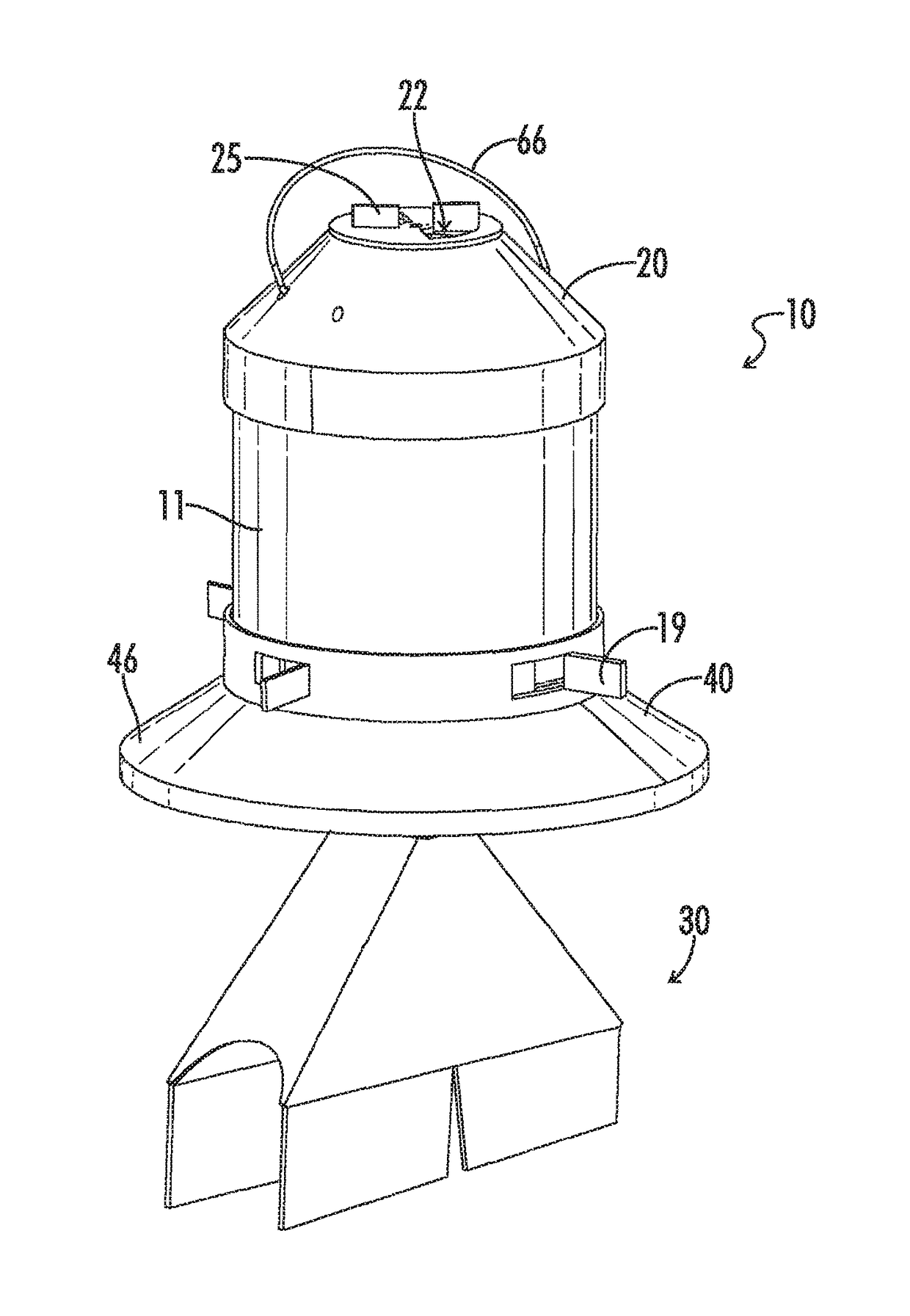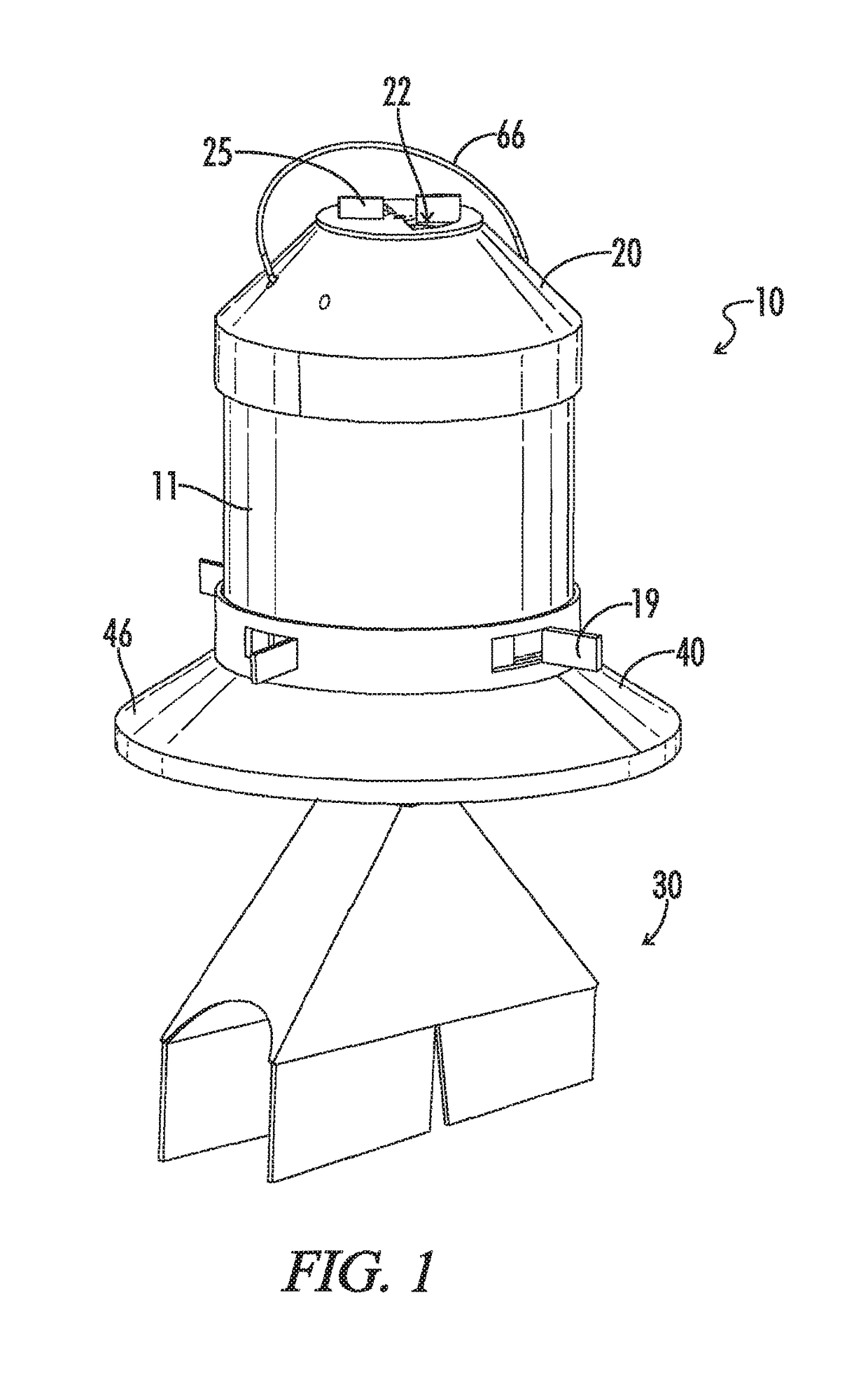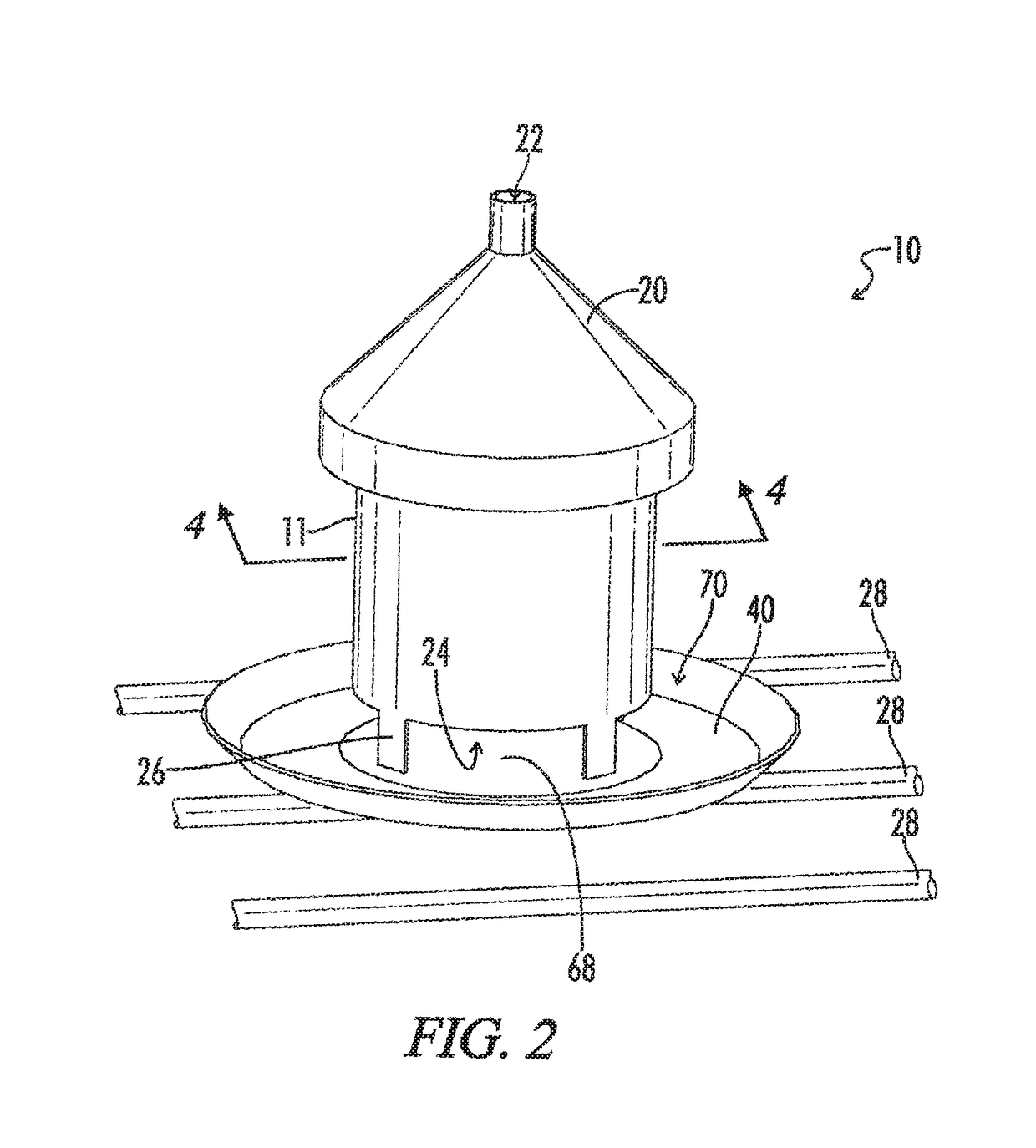Grill smoker apparatus
a grille and smoker technology, applied in meat/fish preservation, food science, climate change adaptation, etc., can solve the problems of large, cumbersome hardware associated with a stand-alone smoker, and many consumers do not have the additional space for an additional enclosure, so as to improve the air flow
- Summary
- Abstract
- Description
- Claims
- Application Information
AI Technical Summary
Benefits of technology
Problems solved by technology
Method used
Image
Examples
Embodiment Construction
[0046]Throughout the specification and claims, the following terms take at least the meanings explicitly associated herein, unless the context dictates otherwise. The meanings identified below do not necessarily limit the terms, but merely provide illustrative examples for the terms. The meaning of “a,”“an,” and “the” may include plural references, and the meaning of “in” may include “in” and “on.” The phrase “is an embodiment” as used herein does not necessarily refer to the same embodiment, although it may. It is understood that in the drawings not all reference numbers are included in each drawing, for the sake of clarity. In addition, positional terms such as “upper,”“lower,”“side,”“top,”“bottom,”“inner,”“outer,”“vertical,”“horizontal,” etc. refer to the apparatus when in the orientation shown in the drawing. The skilled artisan will recognize that objects in accordance with the present disclosure can assume different orientations when in use.
[0047]Included herein are multiple i...
PUM
 Login to View More
Login to View More Abstract
Description
Claims
Application Information
 Login to View More
Login to View More - R&D
- Intellectual Property
- Life Sciences
- Materials
- Tech Scout
- Unparalleled Data Quality
- Higher Quality Content
- 60% Fewer Hallucinations
Browse by: Latest US Patents, China's latest patents, Technical Efficacy Thesaurus, Application Domain, Technology Topic, Popular Technical Reports.
© 2025 PatSnap. All rights reserved.Legal|Privacy policy|Modern Slavery Act Transparency Statement|Sitemap|About US| Contact US: help@patsnap.com



